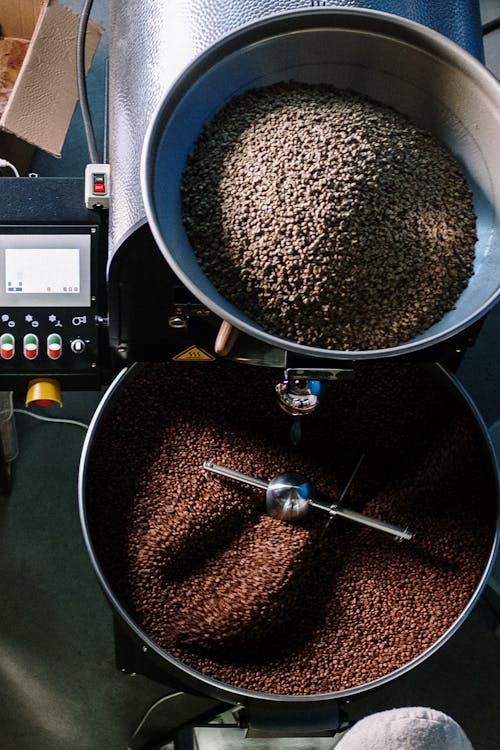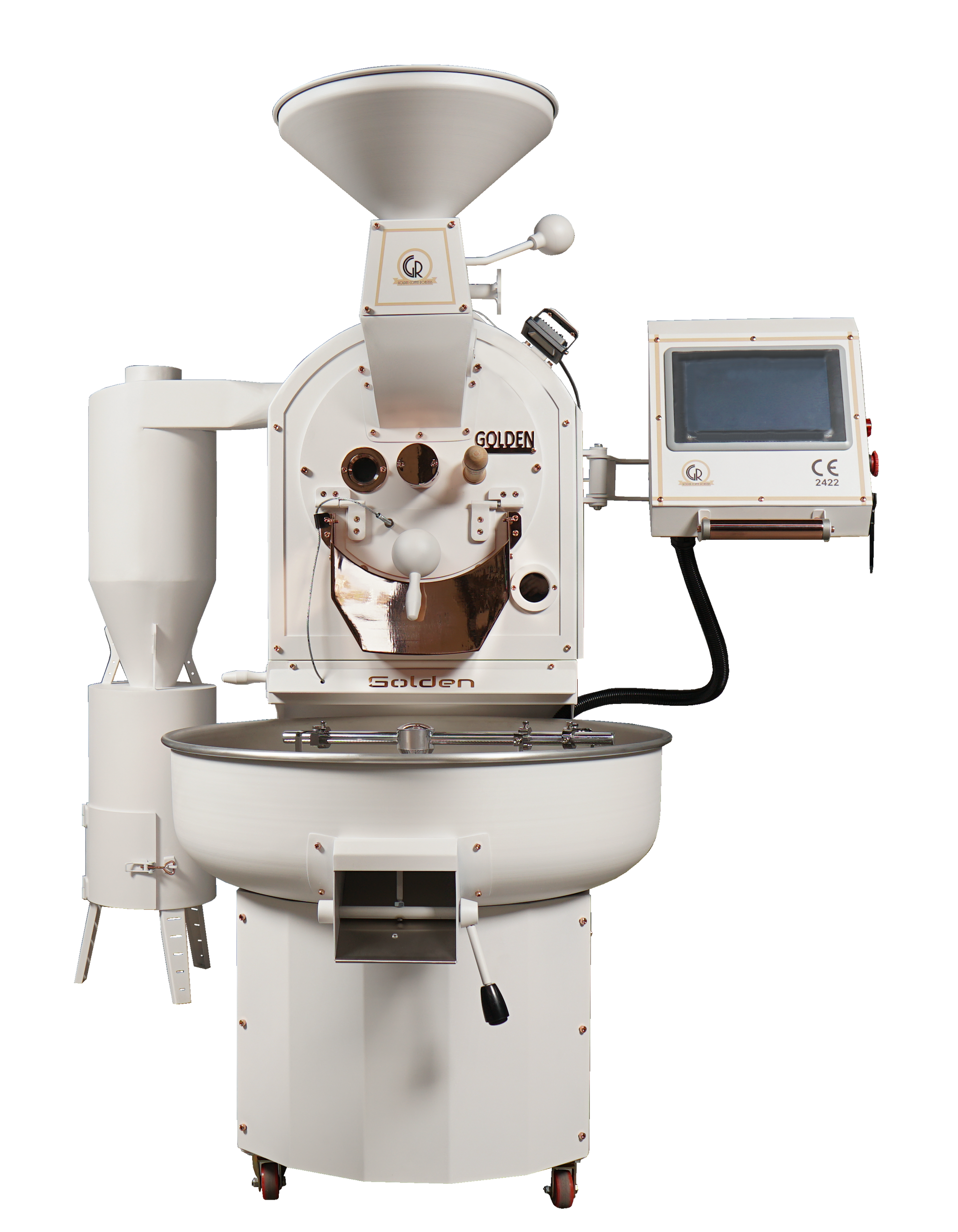Coffee roasting is both an art and a science, and understanding the different parts of a coffee roaster allows you to get the best use out of your machine and really master the coffee roasting process. There are many different roasting machine brands out there, but the machines all run on the same basic principles.

In this guide, we'll explore the various components of a coffee roaster, shedding light on their functions and importance. Whether you're a coffee enthusiast, aspiring roaster, or general reader, this will hopefully enhance your appreciation for the craft and technology behind your favorite beverage!
Roasting Drum

The drum is the heart of a coffee roaster. This is where green coffee beans transform into aromatic roasted beans. It rotates to ensure even heating and roasting of the beans, playing a pivotal role in the process of roasting.
External heat is applied to the bottom of the drum, which then rotates over this heat source, becoming hotter and hotter until the coffee beans within it are roasted from direct contact.
Agitator
Located within the drum, the agitator helps ensure uniform roasting by continuously stirring the coffee beans during the roasting process. It prevents beans from clumping together and promotes consistent heat distribution for a balanced roast.
Burner
Responsible for generating heat, the burner is a key component of the roasting machine. It provides the necessary energy to roast the coffee beans to perfection, allowing roasters to control the temperature and achieve desired roast profiles.
Exhaust System

The exhaust system plays a crucial role in maintaining airflow and removing smoke and chaff during the roasting process. It ensures proper ventilation within the roasting machine, preventing the accumulation of unwanted byproducts and maintaining air quality.
Gas Control Valve
The gas control valve regulates the flow of gas to the burner, allowing for precise control of heat output during the roasting process. By controlling the gas flow, you can achieve precise temperature profiles during the roasting process, which is essential for achieving the desired roast level and flavor profile of the coffee beans.
Additionally, the gas control valve ensures safety by allowing you to shut off the gas supply in case of emergencies or malfunctions.
Bean Hopper

The bean hopper is a storage container typically located above or adjacent to the roasting machine. Its purpose is to hold a quantity of green coffee beans before they are fed into the roaster. The bean hopper allows for convenient access to beans and ensures a continuous supply for roasting without the need for frequent refilling.
Bean Loader
The bean loader is responsible for transferring green coffee beans into the roasting chamber, ensuring a steady supply throughout the roasting cycle. It facilitates efficient operation and minimizes downtime by automating the bean loading process.
Cooling Tray
After the roasting cycle is complete, the cooling tray facilitates the rapid cooling of the roasted beans, halting the roasting process and preventing overcooking. It allows for efficient handling and transfer of the beans post-roast. Some roasting machines come with a cooling tray of their own, while other machines do not.
Chaff Collector
During roasting, coffee beans shed a thin, papery skin called chaff. The chaff collector gathers and removes this byproduct from the roasting chamber, preventing it from interfering with the roasting process or accumulating within the machine. Always avoid letting chaff build up, as it poses a fire risk and problems with hygiene and maintenance.
The chaff collector is typically positioned either within or attached to the roasting machine. It may use various methods to collect the chaff, such as air suction or mechanical filters.
Control Panel
The control panel serves as the command center of the coffee roaster, allowing you to monitor and adjust various parameters such as temperature, airflow, roasting time, and, in more advanced machines, data logging and monitoring. It provides the interface for precise control and customization of the roasting process.
Drum Motor
The drum motor drives the rotation of the drum, ensuring consistent movement of the coffee beans during roasting. It provides the mechanical power necessary for the roasting process and contributes to uniform heat distribution.
Temperature Probe
A temperature probe, or a thermocouple, is a sensor that measures the temperature inside the roasting chamber, providing crucial data to the roaster for monitoring and controlling the roasting process. This device enables precise adjustments to achieve desired roast profiles and consistency.
Conclusion

Understanding the components of a coffee roaster is essential for aspiring roasters to master the art of coffee roasting. Each part plays a vital role in shaping the final flavor profile of the roasted beans, making it crucial to comprehend their functions and interactions.
With this knowledge, you can roast coffee beans with confidence, armed with the tools to create exceptional coffee experiences!
Are you looking into getting your own coffee roasting machine? Tell us why in a comment!







Leave a comment